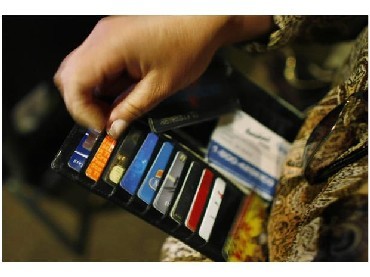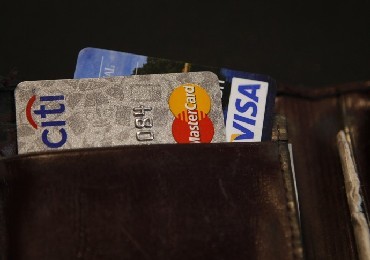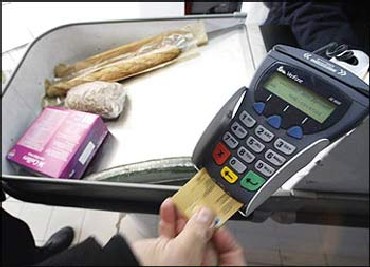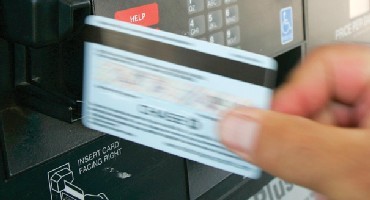Photographs: Reuters Masoom Gupte in Mumbai
Debit cards may have made it easy for us to forgo carrying any cash. Only, these cards have transactional hazards and are known to have let down their users on occasions.
Hitesh Vora, an engineering student, found himself in a sticky situation once, when his card was not recognised by the point of sale (PoS) machine.
"If you don't have cash or another card to make the payment, it can be embarrassing," he says.
Damage
When the card is not accepted, either at the PoS or at an ATM, the card itself could be damaged.
At times, prolonged usage can damage its magnetic strip, rendering the card data unreadable. The bank will charge about Rs 100-250 to replace the card.
...
What to do if your debit card fails you
Pin
Punch the wrong Personal Identification Number (PIN) and your card can get stuck in the ATM.
For banks, this is a strategy to stop debit card misuse by an unauthorised person, but the strategy could backfire on you.
In such cases, you need to register a complaint with the bank's customer service. Keep the complaint number handy until the matter is sorted.
Either way, there is no immediate respite. It can take one to three working days to retrieve the card from your own bank's ATM. In case it is stuck in the ATM of one of the other banks in the network, it could take longer.
"If the card is stuck in a standalone ATM, it makes sense to block the card and just apply for a new one. Debit cards are signature-based but there is no cross-verification at PoS terminals and it is risky to leave the card in the ATM," says Sonalee Panda, head(products), ING Vysya Bank.
...
What to do if your debit card fails you
Photographs: Reuters
Transactions
At times, the transaction is termed unsuccessful, but the amount for the transaction gets debited from your account.
Besides the complaint number, also note details such as the ATM number and location, vendor's name with address in case of PoS disputes, time and date of transaction, nature of dispute and the disputed amount, as a record.
Resolving such problems may take anywhere from 15 days to a month. This is despite RBI's mandate, asking banks to reimburse any wrongfully debited amount on account of failed ATM transactions within a maximum of 12 days from the date of receipt of the customer complaint.
The apex bank levies penalties on the banks for any additional time taken to reverse the transaction.
This timeline is also applicable to problems in online transactions due to users refreshing the web pages while the transaction is in process or losing the internet connection.
...
What to do if your debit card fails you
Online
With online transactions, you usually have to provide details like card number, name on the card, its expiry date and the Card Verification Value (CVV) number, a three-digit one, imprinted at the end of the signature panel on the reverse of the card.
Banks advise clients to only use websites certified by Verified-by-Visa or MasterCard SecureCode, which serve as additional verification points, thereby ruling out card misuse.
To minimise the risk further, banks advise scratching out the CVV number and memorising it instead.
You could also ask for mobile phone and emails alerts each time there is a transaction using your card.
...
What to do if your debit card fails you
Last, most debit cards issued can also be used internationally. But it may not always be smooth sailing, warns S Govindan, general manager, personal banking, Union Bank of India.
"If banks detect any out-of-turn usage and you cannot be immediately contacted to verify the transaction, your card will be blocked," he says.
Banks have internal mechanisms to track card usage habits. So, be sure to inform your bank of its use abroad, if you have no prior history of doing so.







article